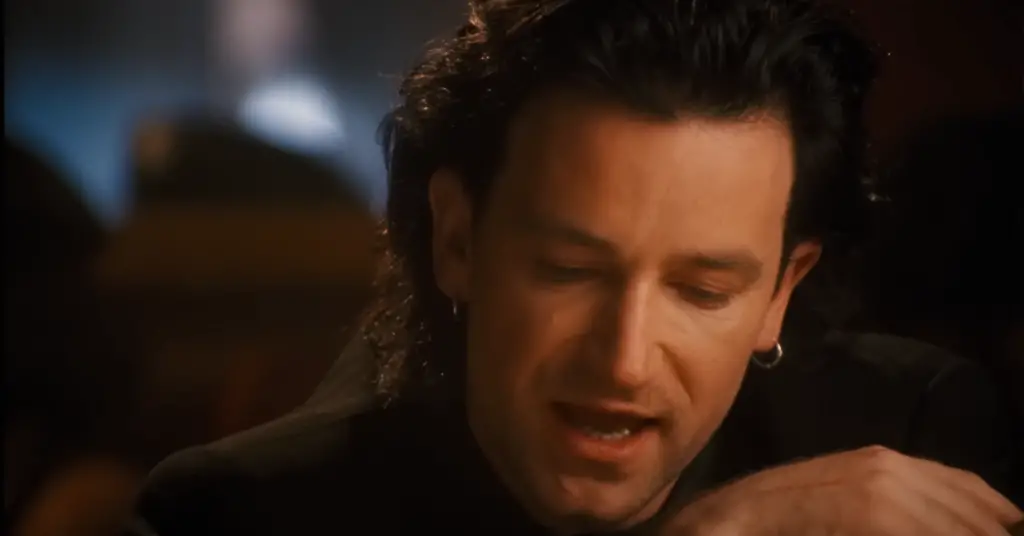U2 – “One”: A Hymn for a Broken World
When U2 released “One” in 1991 as part of their landmark Achtung Baby album, they didn’t just write a hit—they penned a song that has since become a modern rock hymn, a meditation on love, forgiveness, unity, and the cracks that run through all of it.
Born out of conflict and near collapse, “One” is paradoxical by design: tender but tense, hopeful but haunted. It asks whether people can stay together while coming apart—and in doing so, it captured the bruised spirit of an uncertain new decade.
The Sound: Lush, Lonesome, and Lean
Musically, “One” is elegant in its restraint. The guitar part—played by The Edge—is almost hymn-like, floating over Adam Clayton’s subdued bass line and Larry Mullen Jr.’s heartbeat of a drum rhythm. The whole track feels like a slow breath in a moment of reflection.
There’s no flash, no bombast—just atmosphere, emotion, and space. Brian Eno and Daniel Lanois’s production choices allow the song to unfold organically, as if it’s discovering itself line by line.
The Voice: Bono’s Broken Prayer
Then there’s Bono’s vocal, which feels less like a performance and more like a confession. He doesn’t sing to impress—he sings like someone trying to figure things out in real time.
“Is it getting better? / Or do you feel the same?”
From the opening line, he invites the listener into a difficult, deeply human conversation. As the song builds, his voice rises—not with rage, but with a mixture of frustration and longing, as if begging the question:
“We’re one, but we’re not the same—so we get to carry each other?”
It’s not a command. It’s a challenge. A plea. A paradox.
The Lyrics: Unity Through Struggle
“One” is a song rife with contradictions—the idea that people can be bonded while still breaking apart, that love can hurt as much as it heals, and that unity isn’t always agreement.
“Did I ask too much? / More than a lot? / You gave me nothing, now it’s all I got.”
The song has been interpreted in many ways: as a relationship in crisis, a band on the brink, a message of unity in the face of global division, or even a conversation with God. It contains multitudes, and that’s exactly why it continues to resonate.
It’s a love song for people who know love is complicated.
It’s a protest song for a world that wants to believe in something better.
The Backstory: A Song That Saved the Band
The birth of “One” came during a moment of intense tension within U2. During the fractious Achtung Baby sessions in Berlin, the band was struggling to find direction—artistically and personally. When The Edge brought in a simple chord progression during a jam session, something clicked.
The mood shifted. They followed the spark.
And from that session, “One” emerged—a song that, by all accounts, helped keep U2 together.
It would go on to become one of their biggest and most enduring songs, touching millions, covered by countless artists, and used in humanitarian causes, benefit concerts, and even wedding ceremonies.
Legacy: Universal, Yet Unresolved
Since its release, “One” has become more than just a U2 song. It’s a cultural touchstone. It’s been adopted by charities, sung in times of mourning, blasted in arenas, whispered through headphones on long walks.
It feels spiritual without being religious. Personal without being confessional. Political without being partisan.
And maybe that’s its genius: it leaves space for you. It’s not about telling you what to feel—it’s about asking you what it means to be together, in spite of everything.

Final Thoughts
“One” isn’t an answer. It’s a question set to music.
It aches with hope. It stumbles toward truth. It dares to believe that connection matters, even when it’s hard.
It doesn’t promise a happy ending.
It just says: “Don’t give up on each other. Not yet.”


Facebook Comments